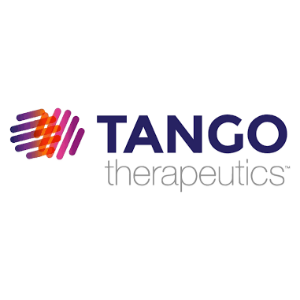Medivir´s licensee, Tango Therapeutics, has discontinued development of its TNG348 clinical program
Rhea-AI Summary
Medivir announced that its licensee, Tango Therapeutics, has discontinued the clinical development of TNG348, a USP1 inhibitor aimed at treating BRCA1/2-mutant and HRD+ cancers, due to toxicity observed in phase 1/2 trials. The program was initially licensed from Medivir in 2020. Despite this setback, Medivir emphasized it remains focused on its lead program, fostroxacitabine bralpamide (fostrox), targeting primary liver cancer. The company is accelerating activities to initiate a pivotal phase 2b study for fostrox, which has the potential to secure market approval for treating HCC patients who fail current first-line treatments, a market projected to be worth $2.5 billion annually by 2028.
Positive
- Medivir is advancing its lead program, fostroxacitabine bralpamide, targeting primary liver cancer.
- Fostrox has the potential to become the first approved treatment for HCC patients who do not respond to first-line treatments, addressing a market valued at $2.5 billion annually by 2028.
- Medivir is accelerating critical activities to initiate a pivotal phase 2b study with accelerated approval intent for fostrox.
Negative
- Tango Therapeutics discontinued the TNG348 clinical program due to toxicity observed in phase 1/2 trials.
- The discontinuation of TNG348 represents a setback for Medivir, which licensed the program to Tango in 2020.
News Market Reaction – TNGX
On the day this news was published, TNGX declined 4.06%, reflecting a moderate negative market reaction.
Data tracked by StockTitan Argus on the day of publication.
TNG348 is a novel USP1 (ubiquitin-specific protease 1) inhibitor, for the treatment of BRCA1/2-mutant and other homologous recombination deficiency (HRD)+ cancers, and has been developed by Tango from the preclinical USP1 program licensed from Medivir in 2020. At present, Medivir has no additional information than what has been announced in Tango's press release: https://ir.tangotx.com/news-releases/news-release-details/tango-therapeutics-announces-discontinuation-tng348-program
The announcement by Tango Therapeutics has no impact on Medivir's focus and development efforts with its lead program fostroxacitabine bralpamide (fostrox) for the treatment of primary liver cancer (HCC). Medivir continues to maximize the momentum of the fostrox development program as it accelerates a number of critical activities to enable initiation of a pivotal phase 2b study with accelerated approval intent. If successful outcome of the planned study, fostrox has the potential to become the first approved treatment for HCC patients who have progressed on current first-line standard of care, a market valued at
For additional information, please contact;
Magnus Christensen, CFO, Medivir AB
Telephone: +46 8 5468 3100.
E-mail: magnus.christensen@medivir.com
About Medivir
Medivir develops innovative drugs with a focus on cancer where the unmet medical needs are high. The drug candidates are directed toward indication areas where available therapies are limited or missing and there are great opportunities to offer significant improvements to patients. Medivir is focusing on the development of fostroxacitabine bralpamide (fostrox), a smart, targeted chemotherapy designed to selectively treat liver cancer cells and to minimize side effects. Collaborations and partnerships are important parts of Medivir's business model, and the drug development is conducted either by Medivir or in partnership. Medivir's share (ticker: MVIR) is listed on Nasdaq Stockholm's Small Cap list. www.medivir.com.
This information was brought to you by Cision http://news.cision.com
The following files are available for download:
Press release (PDF) |
![]() View original content:https://www.prnewswire.com/news-releases/medivirs-licensee-tango-therapeutics-has-discontinued-development-of-its-tng348-clinical-program-302154264.html
View original content:https://www.prnewswire.com/news-releases/medivirs-licensee-tango-therapeutics-has-discontinued-development-of-its-tng348-clinical-program-302154264.html
SOURCE Medivir






